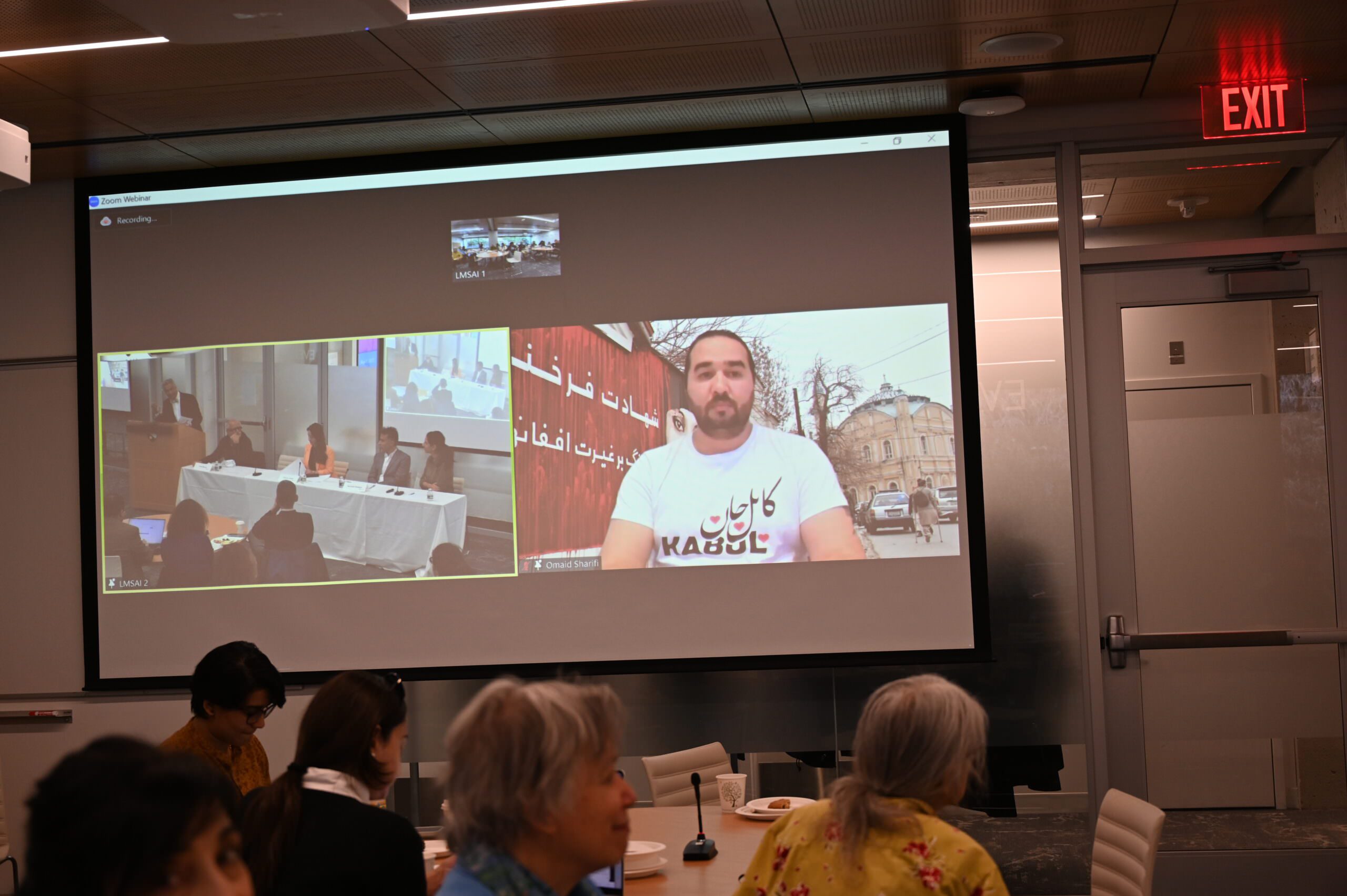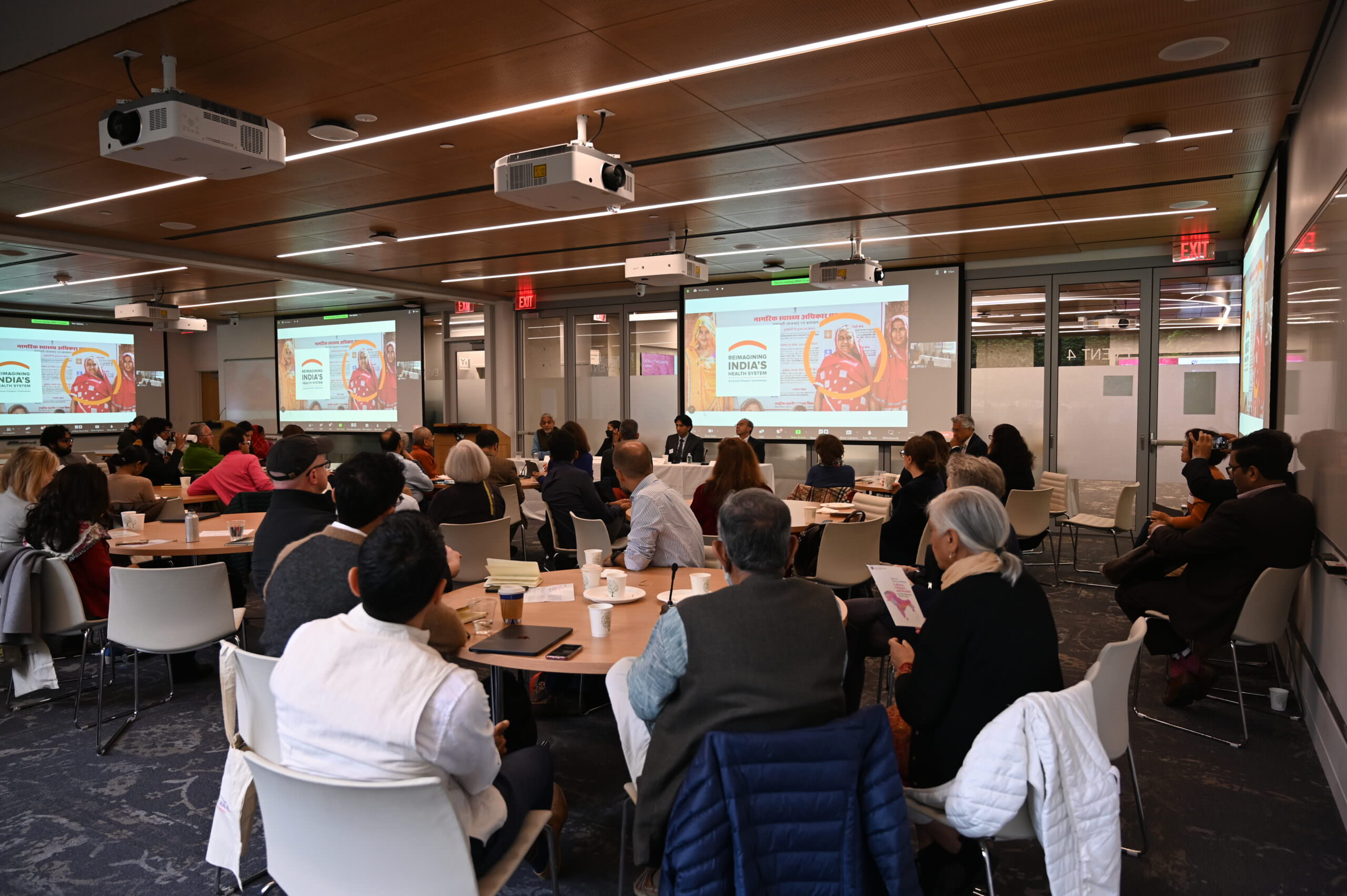
Scholars, practitioners and a packed audience gathered for the Mittal Institute’s flagship spring event, the Annual Cambridge Symposium, to present work and discuss ideas central to South Asia. This year’s conference focused on the theme of “resiliency.”
The day opened with Harvard professor Maya Jasanoff in conversation with Reema Nanavaty of SEWA, discussing working on the ground with women in marginalized communities in the region.
“We come together to build our collective strength in our fight against poverty. We don’t build our collective strength to fight against a contractor or a government, but together with each other on overcoming poverty. SEWA is the path of the poor women. It is for the women themselves to learn and grow. There is nobody who comes and teaches or preaches. So there is no SEWA without poor, without women, and without workers.”
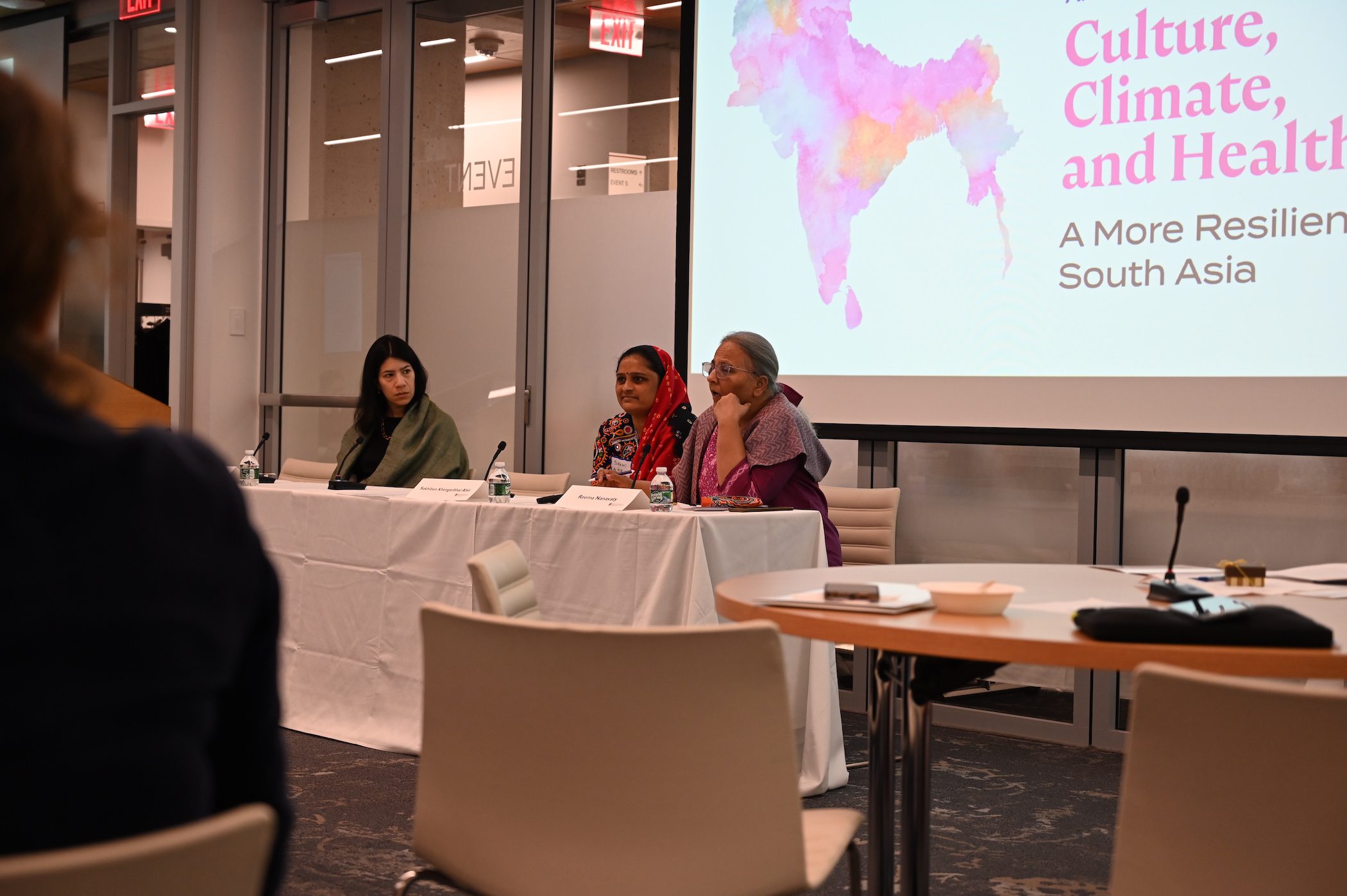
The next panel, “Pathways Towards Universal Health Coverage,” featured Prof. Vikram Patel of Harvard Medical School and the Lancet Citizens’ Commission, who presented research on ways to achieve universal health coverage in India with leading experts.
“As a commission, we really needed to bring these diverse voices together in order for a consensus to emerge, a consensus that was built both on the reality of India’s health system, but also on gathering the views of the different actors and, of course, most importantly, the citizens of India.”
The panel discussed the work of the Lancet Citizens’ Commission, whose aim is to lay a roadmap for the Indian healthcare system to achieve universal health coverage (UHC). Moderated by Prof. Vikram Patel (a co-chair of the Commission), the panel showcased some of the research being undertaken that will guide the recommendations. Anuska Kalita, a research fellow of the Commission, shared the findings from a qualitative study undertaken to analyze policy actors’ perceptions about UHC, the barriers that have prevented achieving UHC, and what they suggest as the way forward. Sapna Desai, a Commissioner and Associate at Population Council, discussed some of the thought-provoking results that the team found from the mixed-methods study of various actors in the healthcare system that was undertaken in six states at the district level. Siddhesh Zadey, a research fellow of the Commission, shared the initial findings from a survey that has been conducted by the Commission to understand the Indian citizens’ experiences and preferences of Indian health system and is the largest such survey to have been conducted in India. Finally, Atul Gupta, a Commissioner and Assistant Professor of Health Care Management at the Wharton School, described some research done by the financing workstream of the Commission related to out-of-pocket expenditure and financing of healthcare in India, including comparisons to other countries. Prof. Tarun Khanna (co-chair of the Commission) gave the closing remarks for the panel by discussing the existing schisms in the Indian system and what would constitute as success for the Commission.
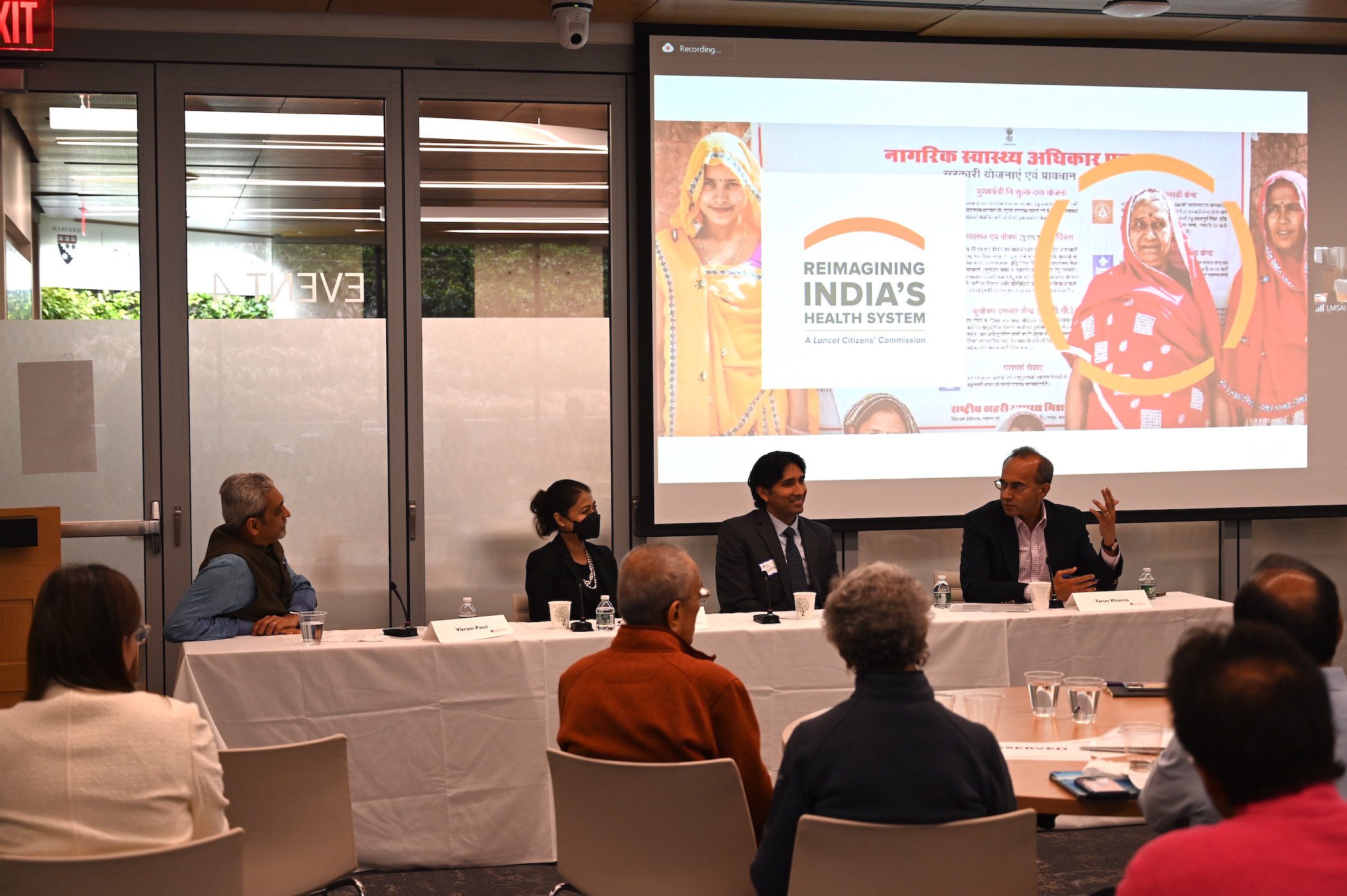
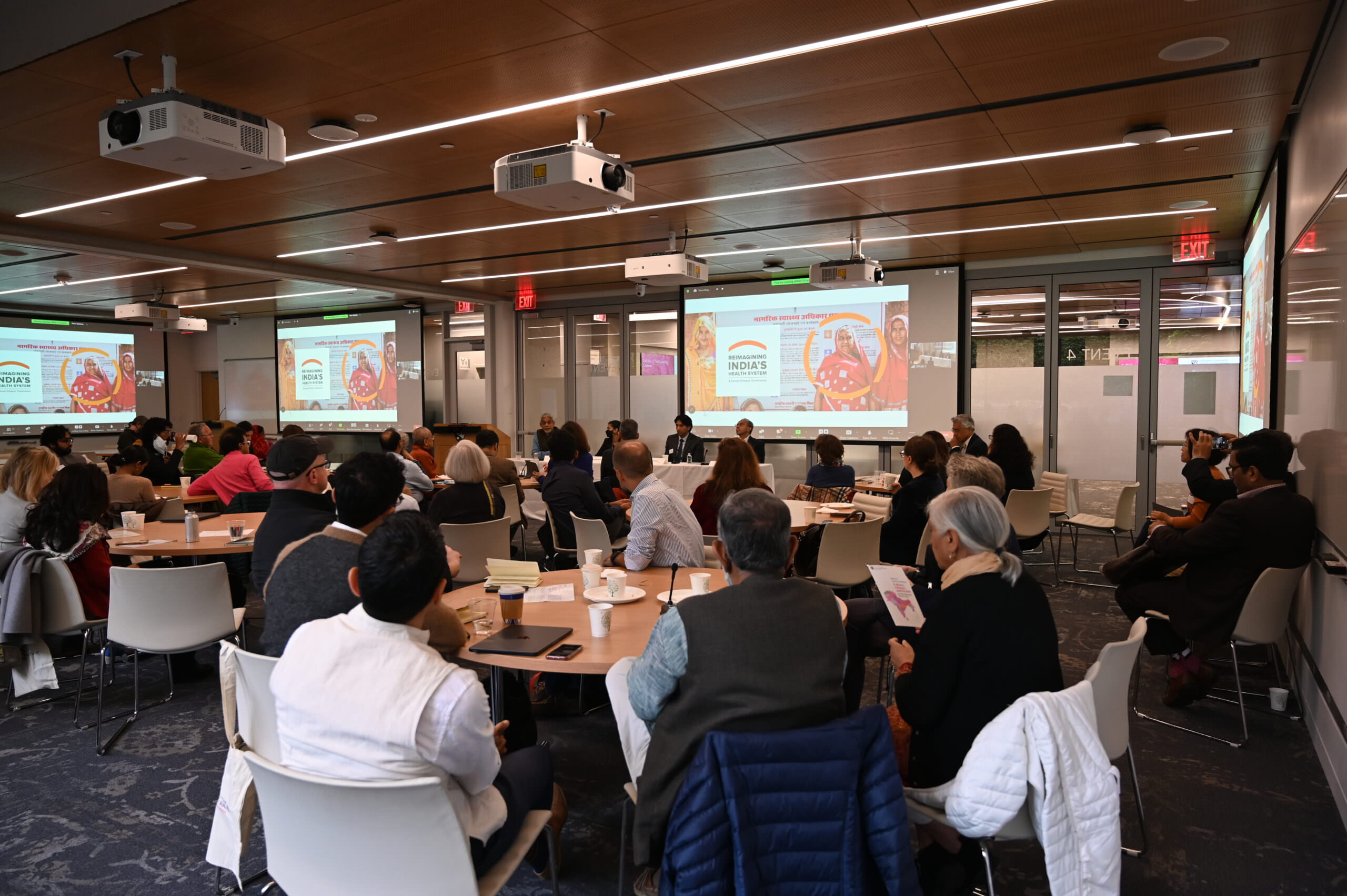
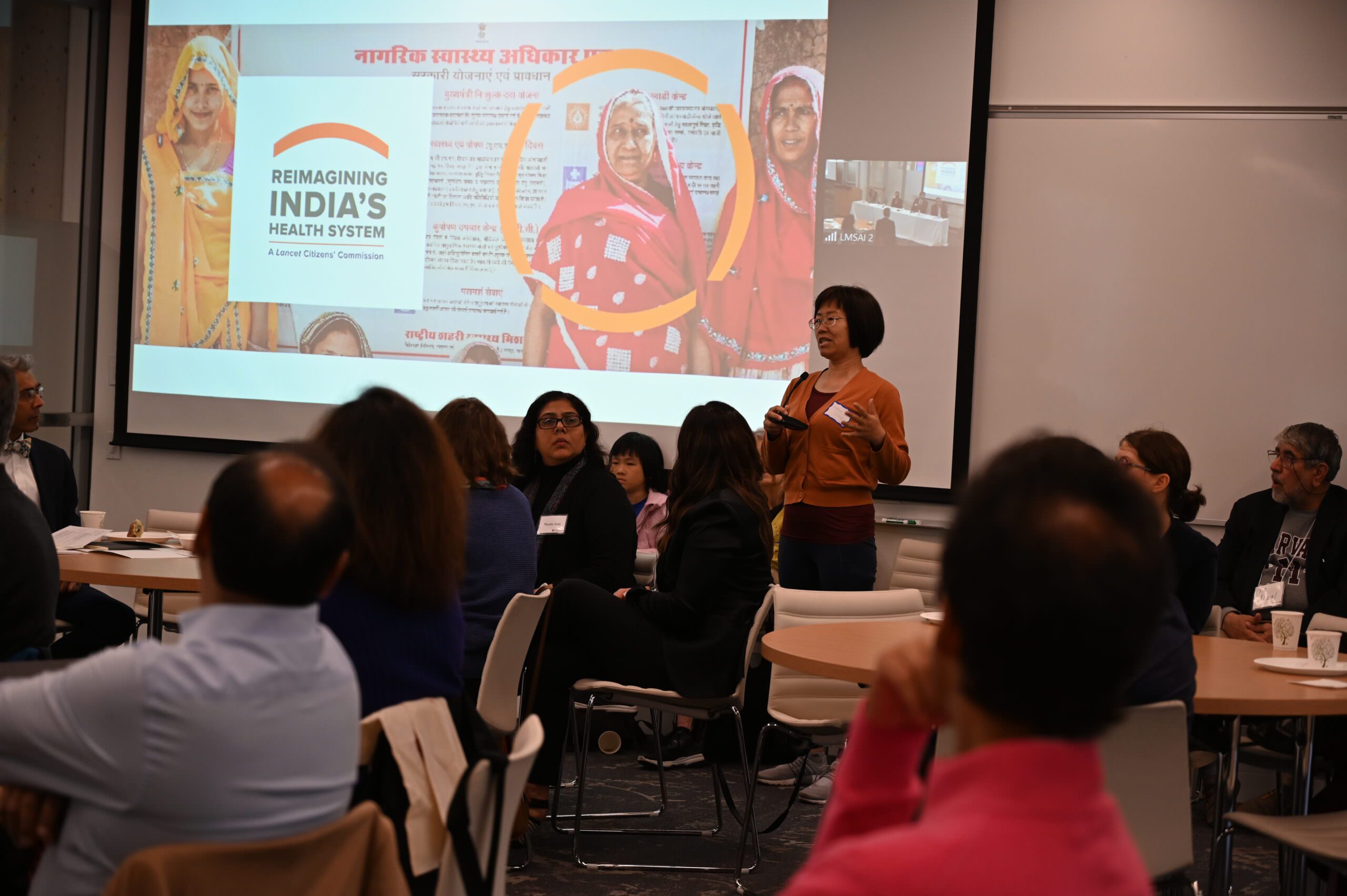
Parimal Patil, chair of Harvard’s South Asian Studies department, moderated the third panel, the “panel of the future,” which highlighted young scholars who are working at the forefront of a wide range of scholarship on South Asia. Ajmal Khan Areethala, LMSAI’s Raghunathan Fellow, focuses on climate change and climate justice in South Asia. Extreme weather causes socioeconomic and political challenges across South Asia, one of the must climate-vulnerable regions on the world; it also has the largest share of poor people who depend on natural resources for survival. Ajmal’s research explores climate change’s impact on caste and Indigenous peoples. “Globally, climate justice emerged as a major framework, acknowledging the disproportionate burden experienced by the countries and communities that are least responsible for the anthropogenic climate change,” Ajmal says. “However, climate justice within countries that are most unequal societies in the world, such as India, has not yet gained enough attention in the climate change policy and scholarship.”
Climate justice within countries that are most unequal societies in the world, such as India, has not yet gained enough attention in the climate change policy and scholarship.
Mariam Zia, Syed Babar Ali fellow, is working on a translation of a book of literary theory from Urdu into English. Her work broadly encompasses religious orientation, storytelling, and the concept of the uncanny, as theorized by Sigmund Freud in 1919. All of these concepts are explored through Dastan e Amir Hamza. “The book I’m currently translating as part of my project here at Mittal looks at how the one reason why Dastan e Amir Hamza never endured the test of time—despite the fact that it’s the longest, most sought-after, the most happening set of stories—is because of colonization,” she explains. Mariam also explains that the story, which looks at religion and culture as one greater whole, was seen by the British as competition to their ideas of divide and rule. “I feel we have a lot to learn today from how storytelling can be used to build this kind of resilience, this kind of hope, that we really need in our world today.”
I feel we have a lot to learn today from how storytelling can be used to build this kind of resilience, this kind of hope, that we really need in our world today.
Kheya Furtado, Bajaj fellow, is looking for answers on the best way to engage with India’s private sector, to achieve universal health coverage. She focuses on health coverage of the private sector and India’s publicly-financed health system, Ayushman Bharat Pradhan Mantri Jan Arogya Yojana, (ABPMJAY), which provides insurance cover and hospitalization access to the bottom 40% of the population. “You have a publicly financed and delivered healthcare system that coexists with a privately financed market-based health system. And so, really, the question is, how do you bring these together?” she explains about the crux of her research.
Gauri Nagpal, design studies and urban planning student at the Harvard Graduate School of Design, shared her Seed for Change project, an electric cart for street vendors, or e-Rehri. The idea was born during the pandemic, when amendments to India’s law made informal workers and their street cart operations illegal seemingly overnight. The amendment stated that no street apparatus could be fastened to the ground and every cart needs to fit between a five foot by six foot space. “We figured out this quick hack to slice the front wheel and fold it at a 90-degree angle, so that it could just fit in the area, and they could continue their operations without having the threat of eviction,” she explains. The idea progressed further, adding different modular features that allow the structure to be quickly collapsed and moved – should the informal worker encounter law enforcement – and, eventually, they decided to “electrify it.”
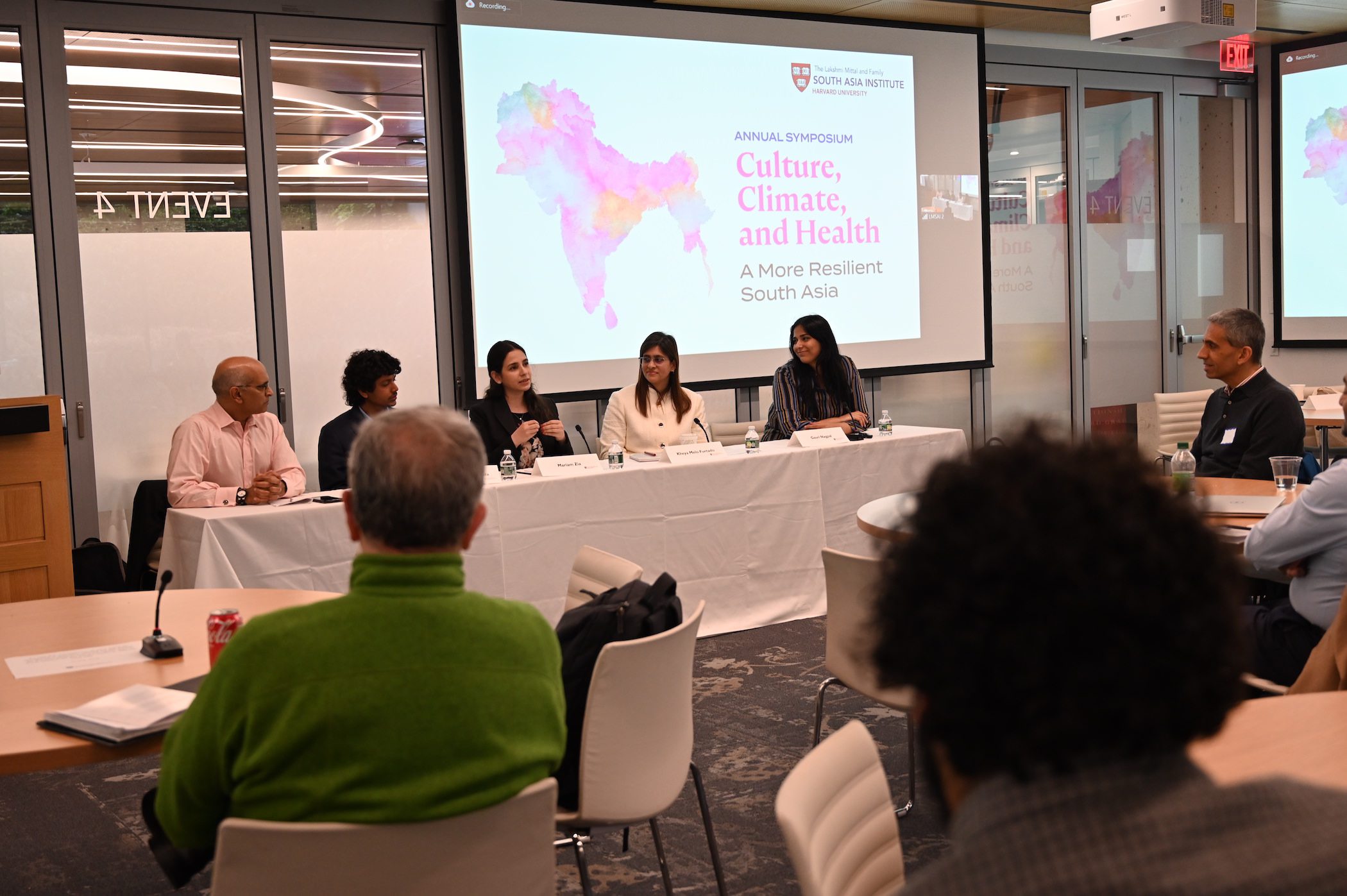
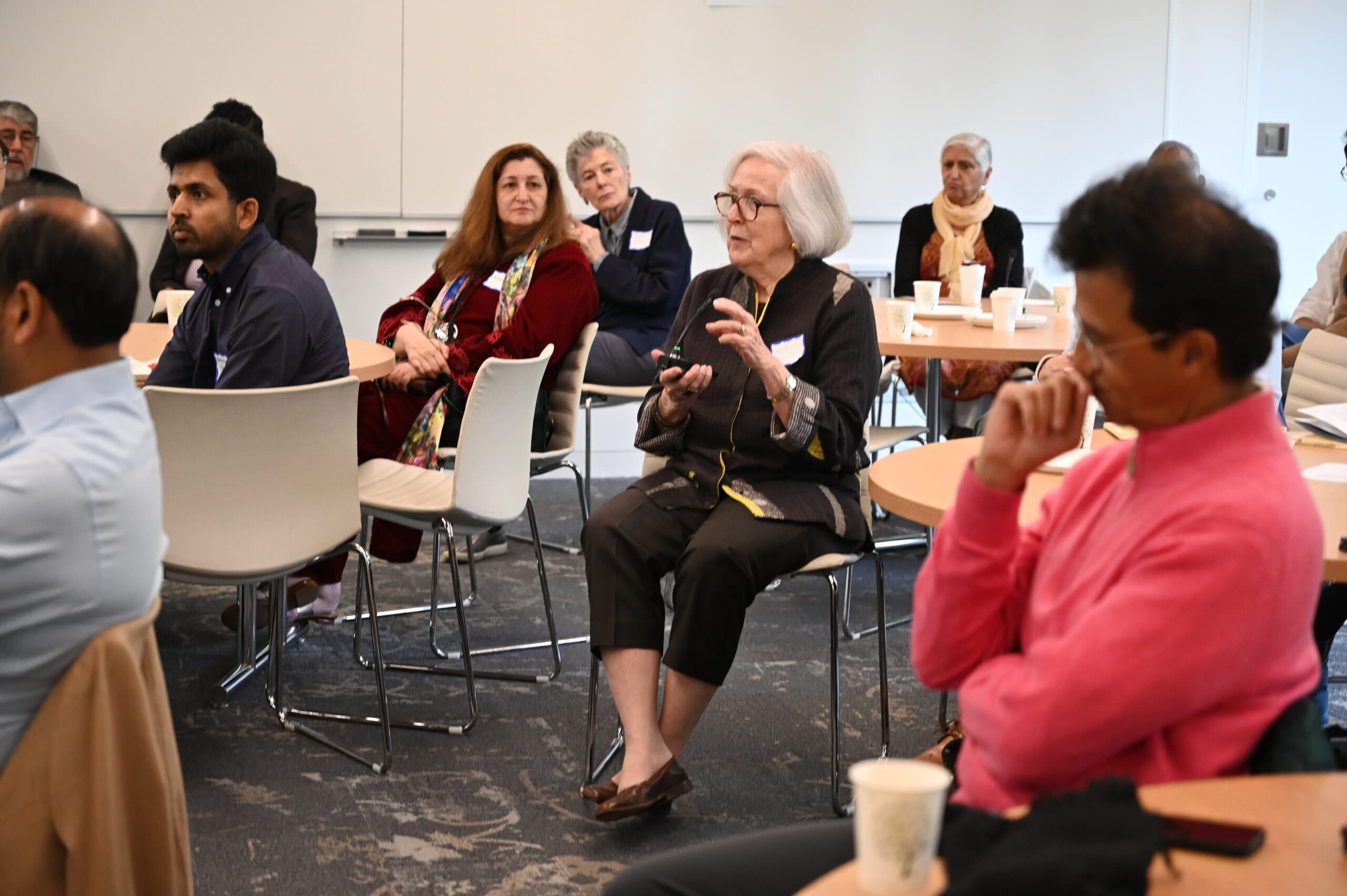
The final panel gathered an artist, activist, and academic to explore their perspectives on fleeing their homeland of Afghanistan. Moderated by Homi Bhaba, Anne F. Rothenberg Professor of the Humanities, the panel probed the ideas of loss, risk, triumph, and what each has sacrificed since the Taliban returned to power. Homeira Qaderi, writer, activist, and educator, has written seven books and is currently the Robert G. James Scholar Fellow at the Radcliffe Institute for Advanced Study. As a storyteller, she shared the tale of her childhood in Herat, when Russian soldiers first invaded her town. She explained that her father sparked her initial love of reading, and that it was after the Taliban invaded Afghanistan that she turned to reading herself. It was a way for her to “create for myself my own world through stories.”
My stories were the only place where I could go to through the open door of our house to alleys, to a street, and go even to my school and see my classmates, see my teacher, and laugh with them loudly. Loudly. Even the Taliban could hear us.
She explained that in 2021, after the Taliban regained power, many of Afghanistan’s prolific writers were evacuated from the country – and for her, as a writer, it is difficult to imagine the future, either here or back at home.
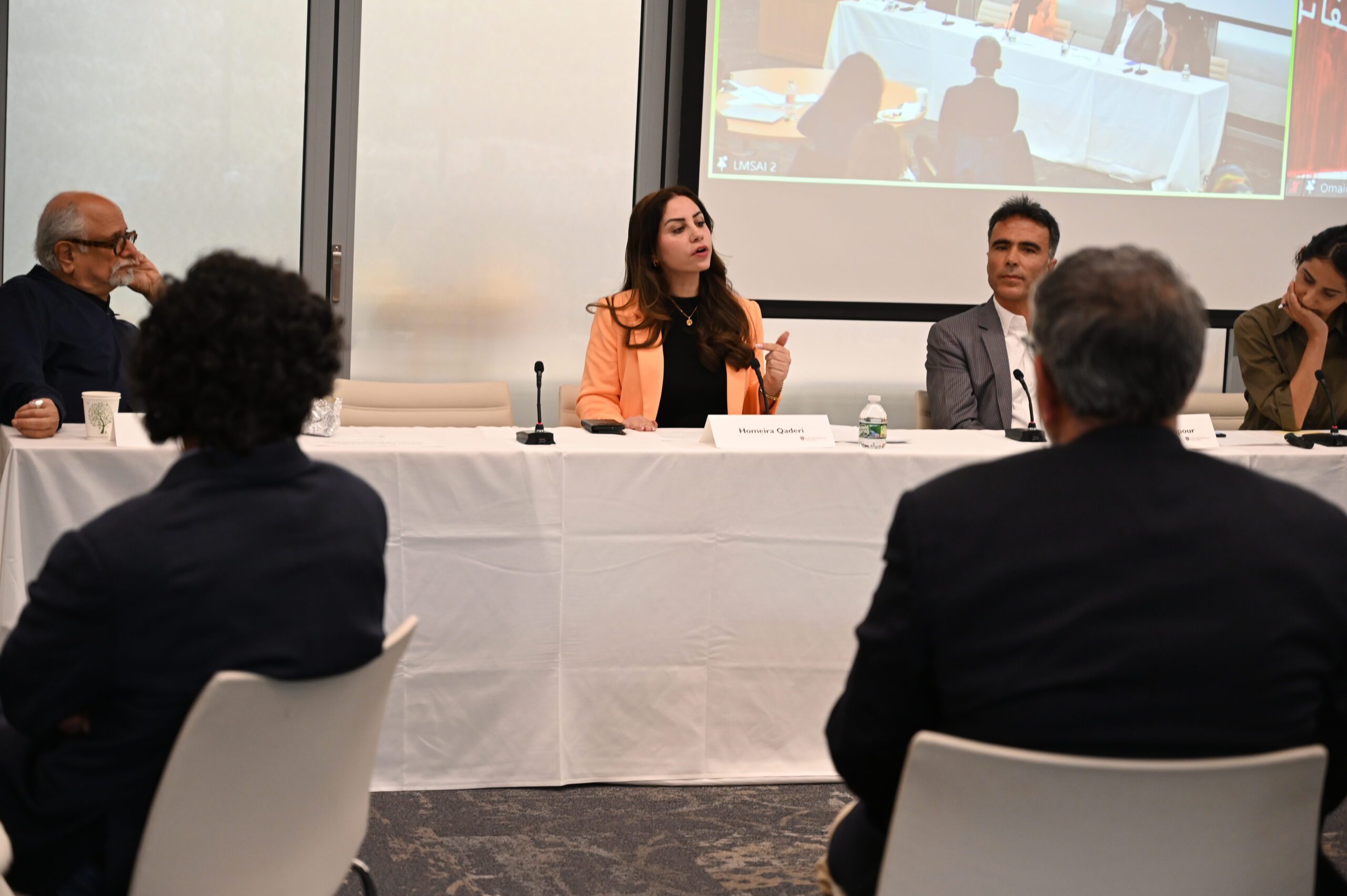
Omaid Sharifi, President, ArtLords and Wartists, explained that he had previously never lived anywhere else besides Kabul. He founded ArtLords in Kabul, which paints the security walls surrounding Kabul with artwork – giving a voice to the voiceless and ultimately creating 2,200 murals across the city. “It was an opportunity for all those people who did not have a voice to communicate with art and those people who are in the government or the international community,” explains Omaid. But now, after fleeing the country after Afghanistan fell to the Taliban, Omaid struggles with where to call home, saying that “sometimes, finding that new home is becoming very difficult.”
Afghanistan is the land of stories. Our students reflected the pain from their own life experiences, a pain that the people of Afghanistan endured for more than 40 years.
Samiullah Nabipour, former Dean of Fine Arts, Kabul University spoke about the cinema department, the only one of its kind in Afghanistan. From its conception in 2008 through the Taliban takeover in 2021, 41 student awards were given for more than 300 short films; three rounds of student festivals were held; seven master’s thesis and one doctoral thesis was awarded; and more than 20 research articles on various dimensions of Afghan cinema were written by professors. “What makes our students’ short films different and unique compared to the short films in other countries is the subject and content and the production of the films,” explains Samiullah. “Afghanistan is the land of stories. Our students reflected the pain from their own life experiences, a pain that the people of Afghanistan endured for more than 40 years. With their films, our students acquired the channel for shouting their pain to terrorist countries and the blind world to see.”
